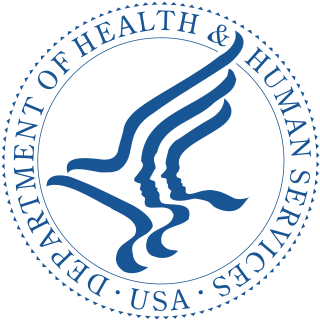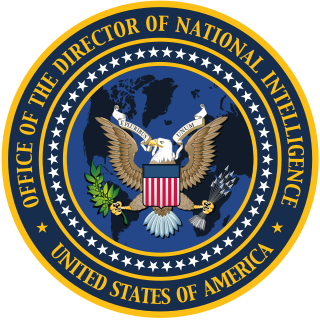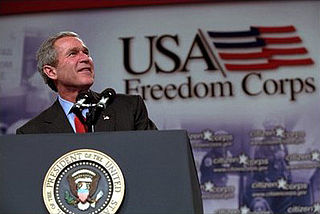
The United States Department of Justice (DOJ), also known as the Justice Department, is a federal executive department of the U.S. government that oversees the domestic enforcement of federal laws and the administration of justice. It is equivalent to the justice or interior ministries of other countries. The department is headed by the U.S. attorney general, who reports directly to the president of the United States and is a member of the president's Cabinet. Merrick Garland has served as attorney general since March 2021.

The Department of the Treasury (USDT) is the national treasury and finance department of the federal government of the United States, where it serves as an executive department. The department oversees the Bureau of Engraving and Printing and the U.S. Mint. These two agencies are responsible for printing all paper currency and minting coins, while the treasury executes currency circulation in the domestic fiscal system. It collects all federal taxes through the Internal Revenue Service; manages U.S. government debt instruments; licenses and supervises banks and thrift institutions; and advises the legislative and executive branches on matters of fiscal policy. The department is administered by the secretary of the treasury, who is a member of the Cabinet. The treasurer of the United States has limited statutory duties, but advises the Secretary on various matters such as coinage and currency production. Signatures of both officials appear on all Federal Reserve notes.

The United States Department of Homeland Security (DHS) is the U.S. federal executive department responsible for public security, roughly comparable to the interior or home ministries of other countries. Its stated missions involve anti-terrorism, border security, immigration and customs, cyber security, and disaster prevention and management.

The United States Department of Health and Human Services (HHS) is a cabinet-level executive branch department of the U.S. federal government created to protect the health of the U.S. people and providing essential human services. Its motto is "Improving the health, safety, and well-being of America". Before the separate federal Department of Education was created in 1979, it was called the Department of Health, Education, and Welfare (HEW).

The Federal Emergency Management Agency (FEMA) is an agency of the United States Department of Homeland Security (DHS), initially created under President Jimmy Carter by Presidential Reorganization Plan No. 3 of 1978 and implemented by two Executive Orders on April 1, 1979. The agency's primary purpose is to coordinate the response to a disaster that has occurred in the United States and that overwhelms the resources of local and state authorities. The governor of the state in which the disaster occurs must declare a state of emergency and formally request from the President that FEMA and the federal government respond to the disaster. The only exception to the state's gubernatorial declaration requirement occurs when an emergency or disaster takes place on federal property or to a federal asset—for example, the 1995 bombing of the Alfred P. Murrah Federal Building in Oklahoma City, Oklahoma, or the Space Shuttle Columbia in the 2003 return-flight disaster.

The director of national intelligence (DNI) is a senior cabinet-level United States government official, required by the Intelligence Reform and Terrorism Prevention Act of 2004 to serve as executive head of the United States Intelligence Community (IC) and to direct and oversee the National Intelligence Program (NIP). All 18 IC agencies, including the Central Intelligence Agency (CIA), the Defense Intelligence Agency (DIA) and the National Security Agency (NSA), report directly to the DNI.

The Minister for Justice, Home Affairs and Migration is a senior minister in the Government of Ireland and leads the Department of Justice, Home Affairs and Migration. The Minister for Justice, Home Affairs and Migration has overall responsibility for law and order in Ireland.

The Transportation Distinguished Service Medal was the highest decoration which could be bestowed by the Secretary of Transportation for exceptional service to the United States government in a position of great responsibility to a member of the United States Coast Guard. In 2003 it was replaced by the Homeland Security Distinguished Service Medal.

The White House Office of Faith-Based and Neighborhood Partnerships, formerly the White House Office of Faith-Based and Community Initiatives (OFBCI) was an office within the White House Office that was part of the Executive Office of the President of the United States.

The National Cyber Security Division (NCSD) is a division of the Office of Cyber Security & Communications, within the United States Department of Homeland Security's Cybersecurity and Infrastructure Security Agency. Formed from the Critical Infrastructure Assurance Office, the National Infrastructure Protection Center, the Federal Computer Incident Response Center, and the National Communications System, NCSD opened on June 6, 2003.

USA Freedom Corps was a White House office and fifth policy council within the Executive Office of the President of the United States under George W. Bush, who as President served as its chair. Bush announced its creation during his 2002 State of the Union Address, and the Corps was officially established the next day, describing itself as a "Coordinating Council... working to strengthen our culture of service and help find opportunities for every American to start volunteering."
Section 287(g) of the U.S. Immigration and Nationality Act authorizes the Department of Homeland Security (DHS) to deputize selected state and local law enforcement officers to enforce federal immigration law. Section 287(g) allows the DHS and law enforcement agencies to make agreements, which require the state and local officers to receive training and work under the supervision of U.S. Immigration and Customs Enforcement. ICE provides the officers with authorization to identify, process, and—when appropriate—detain immigration offenders they encounter during their regular, daily law-enforcement activity.
The National Security and Homeland Security Presidential Directive, signed by President of the United States George W. Bush on May 4, 2007, is a Presidential Directive establishing a comprehensive policy on the federal government structures and operations in the event of a "catastrophic emergency". Such an emergency is defined as "any incident, regardless of location, that results in extraordinary levels of mass casualties, damage, or disruption severely affecting the U.S. population, infrastructure, environment, economy, or government functions."
The Joint Regional Information Exchange System (JRIES) began in December 2002 as an all-source intelligence / information sharing system, designed initially as a grassroots pilot system to connect the California Anti-Terrorism Information Center, the New York Police Department, and the Defense Intelligence Agency (DIA).

Juliette N. Kayyem is an American former government official and author. She is host of the Boston-based radio channel WGBH (FM)'s podcast The SCIF, and has also appeared on CNN and Boston Public Radio, and written columns for The Boston Globe.

The Alabama Department of Homeland Security is a state agency with the executive branch of the Alabama State government designed to develop, coordinate, and implement of a state policy to secure the State of Alabama from terrorist threat or attack. It was established by the Alabama Homeland Security Act of 2003 which was signed on June 18, 2003 by Governor Bob Riley. The Director of the Alabama Department of Homeland Security is Jay Moseley.

Michael G. Masters is the National Director and Chief Executive Officer of the Secure Community Network. He previously served as Senior Vice President of The Soufan Group and Executive Director of the Department of Homeland Security and Emergency Management for Cook County, Illinois. He also serves on the Secretary of the Department of Homeland Security’s Faith Based Security and Communications Advisory Committee, as the Vice-Chair of the Secretary’s Homeland Security Advisory Council’s Grants Review Task Force and on the Secretary’s Homeland Security Advisory Council’s Foreign Fighter Task Force.












